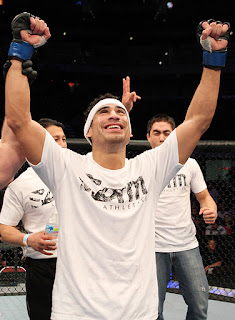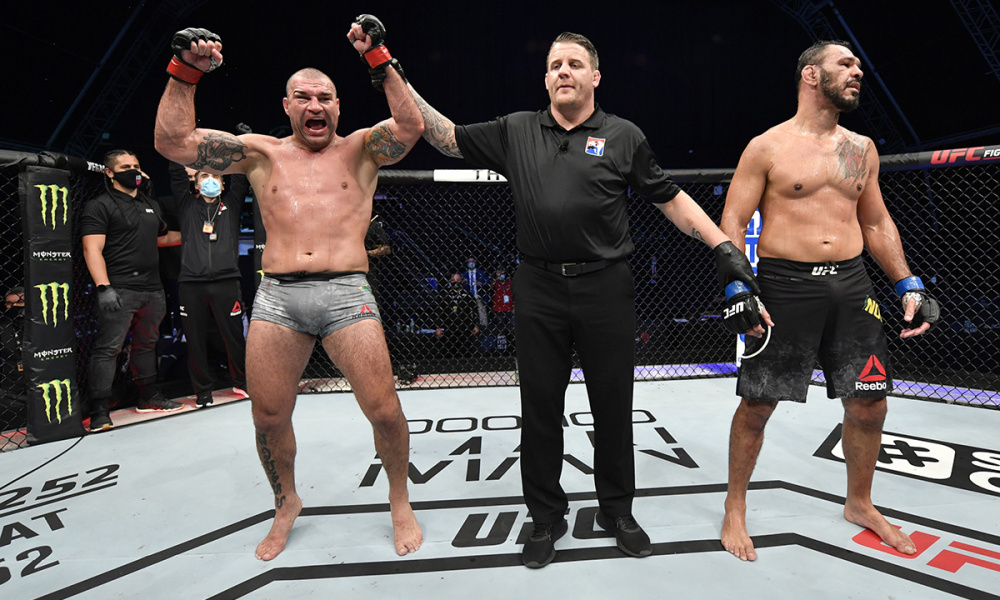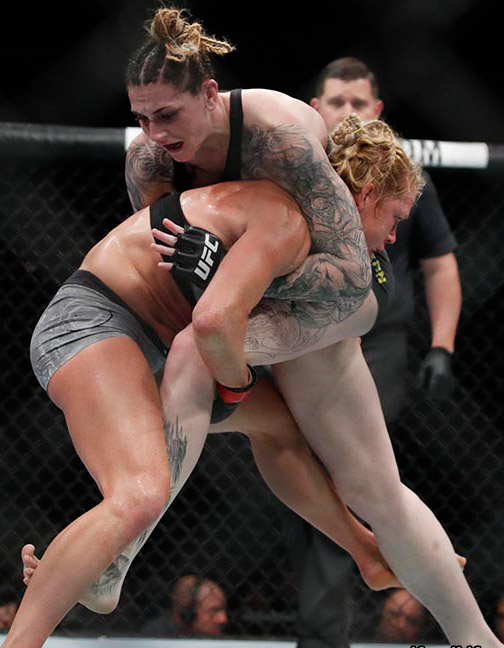We should thank them for doing what they do. At a moment’s notice, some fighters are willing to jump into the cage against opponents they barely have time to scout, and compete for our enjoyment. While the new fight may not garner the reaction from fans that the original matchup presented, the replacement fighter still deserves our respect for “stepping up.” At the UFC 141 post-fight press conference, Danny Castillo was nearly brought to tears when he heard boos, which was a sad response, considering the sacrifice he made for our viewing.
Castillo, Dan Miller, Josh Koscheck, and many others have stepped in to fight when a peer is forced off a card for one reason or another. Especially with the UFC providing insurance to its signed fighters, it’s becoming more and more often that we see fighters step away from a fight. An individual who is called by UFC matchmakers to replace the original fighter places himself in a precarious position. Do you take the fight and do the company a favor, even though you are not in “fight shape” and know very little about your opponent? Or do you reject the contest and earn the scorn of your employers while missing out on a potential opportunity?
It may be easy to think that these fighters should take any opportunity they can to jump into the Octagon. However, this is only the case if a fighter was cut from the organization, and the fill-in spot is his only way back in. See example: Efrain Escudero. Under those circumstances, a fighter should do whatever he must to step into the Octagon and possibly win his way back into the biggest mixed martial arts stage of them all. However, fighters such as Miller, Koscheck and Castillo have all taken bouts on short notice, and in some ways their records have suffered. Koscheck took a fight against Thiago Alves at UFC 90 on short notice, and was dispatched because of what I believed to be a lack of proper game planning that would have taken place during training camp. Miller fought against Rousimar Palhares in UFC Rio on short notice, while Castillo has taken many of his UFC fights without the ability to have a full training camp before them. Those six weeks are imperative to not only coming up with a solid plan to defeat an opponent, but to reaching a physical and mental “peak” at the right time to push yourself through the fight.
In the UFC a loss on your record pushes you that much closer out the door, so the risk of losing a fight that you take on short notice is daunting. Some individuals believe that doing the company a “favor” by stepping in will help you stay with the organization, as they will repay those who show that loyalty, but the practice can only go so far. At what point do you decide to put your career win/loss direction and record first?
Both sides of the argument have their pros and cons. Taking the fight and shocking the world to improve your career, a la Charlie Brenneman gains you a better position in a tough organization. Or you can turn the fight down, pass on the quick money, and wait for a more suitable opponent down the line. Either way the fighter will win and lose something with the decision that he makes.
Click here to rate all the fights from UFC 141.





I think that more often than not, fighting on short notice is a limited downside proposition. In fact, I think that the fighter who was preparing for one opponent, then has his opponent changed on him, is the one who is at a disadvantage, and who has the most to lose. You mention Charlie Brenneman, but Rick Story's predicament is the one we should be lamenting.
I'm not sure if I fully agree with you about the individual who should be at a disadvantage. If fighter A is the individual who was preparing for the fight originally and has his opponent switched, yes that does make game planning hard if not impossible. However, I feel like they have the advantage because they have at least been preparing for a bout for an extended period of time. The fighter who steps in right off of the side lines and wasn't truly preparing for a bout, I believe that is a tougher situation because of the mental and physical demands that you are quickly expected to met.